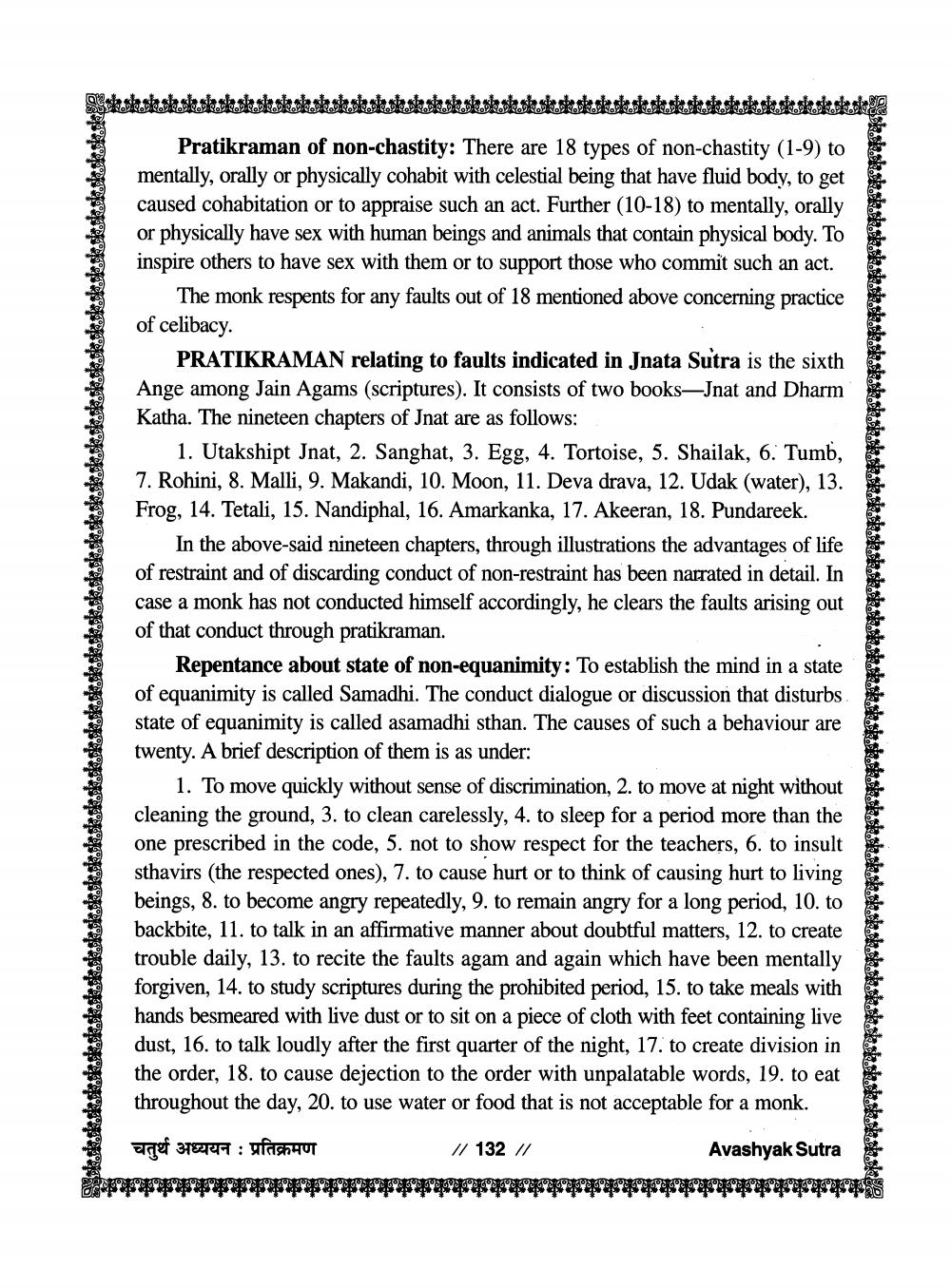________________
ಗಣಿತಶ...ಕಬಳಜಳಜಳಕ.ಕಳೆಣಿಕರ್ಣಿಣಿ..
suksekskukkkkkkkkkkkkkkkkkkkkkkkkkkkkkkkk
Pratikraman of non-chastity: There are 18 types of non-chastity (1-9) to mentally, orally or physically cohabit with celestial being that have fluid body, to get caused cohabitation or to appraise such an act. Further (10-18) to mentally, orally or physically have sex with human beings and animals that contain physical body. To inspire others to have sex with them or to support those who commit such an act.
The monk respents for any faults out of 18 mentioned above concerning practice of celibacy.
PRATIKRAMAN relating to faults indicated in Jnata Sutra is the sixth Ange among Jain Agams (scriptures). It consists of two books—Jnat and Dharm Katha. The nineteen chapters of Jnat are as follows:
1. Utakshipt Jnat, 2. Sanghat, 3. Egg, 4. Tortoise, 5. Shailak, 6. Tumb, 7. Rohini, 8. Malli, 9. Makandi, 10. Moon, 11. Deva drava, 12. Udak (water), 13. Frog, 14. Tetali, 15. Nandiphal, 16. Amarkanka, 17. Akeeran, 18. Pundareek.
In the above-said nineteen chapters, through illustrations the advantages of life of restraint and of discarding conduct of non-restraint has been narrated in detail. In case a monk has not conducted himself accordingly, he clears the faults arising out of that conduct through pratikraman.
Repentance about state of non-equanimity: To establish the mind in a state of equanimity is called Samadhi. The conduct dialogue or discussion that disturbs state of equanimity is called asamadhi sthan. The causes of such a behaviour are twenty. A brief description of them is as under:
1. To move quickly without sense of discrimination, 2. to move at night without cleaning the ground, 3. to clean carelessly, 4. to sleep for a period more than the one prescribed in the code, 5. not to show respect for the teachers, 6. to insult sthavirs (the respected ones), 7. to cause hurt or to think of causing hurt to living beings, 8. to become angry repeatedly, 9. to remain angry for a long period, 10. to backbite, 11. to talk in an affirmative manner about doubtful matters, 12. to create trouble daily, 13. to recite the faults agam and again which have been mentally forgiven, 14. to study scriptures during the prohibited period, 15. to take meals with hands besmeared with live dust or to sit on a piece of cloth with feet containing live dust, 16. to talk loudly after the first quarter of the night, 17. to create division in the order, 18. to cause dejection to the order with unpalatable words, 19. to eat throughout the day, 20. to use water or food that is not acceptable for a monk.
चतुर्थ अध्ययन : प्रतिक्रमण
// 132 //
Avashyak Sutra




